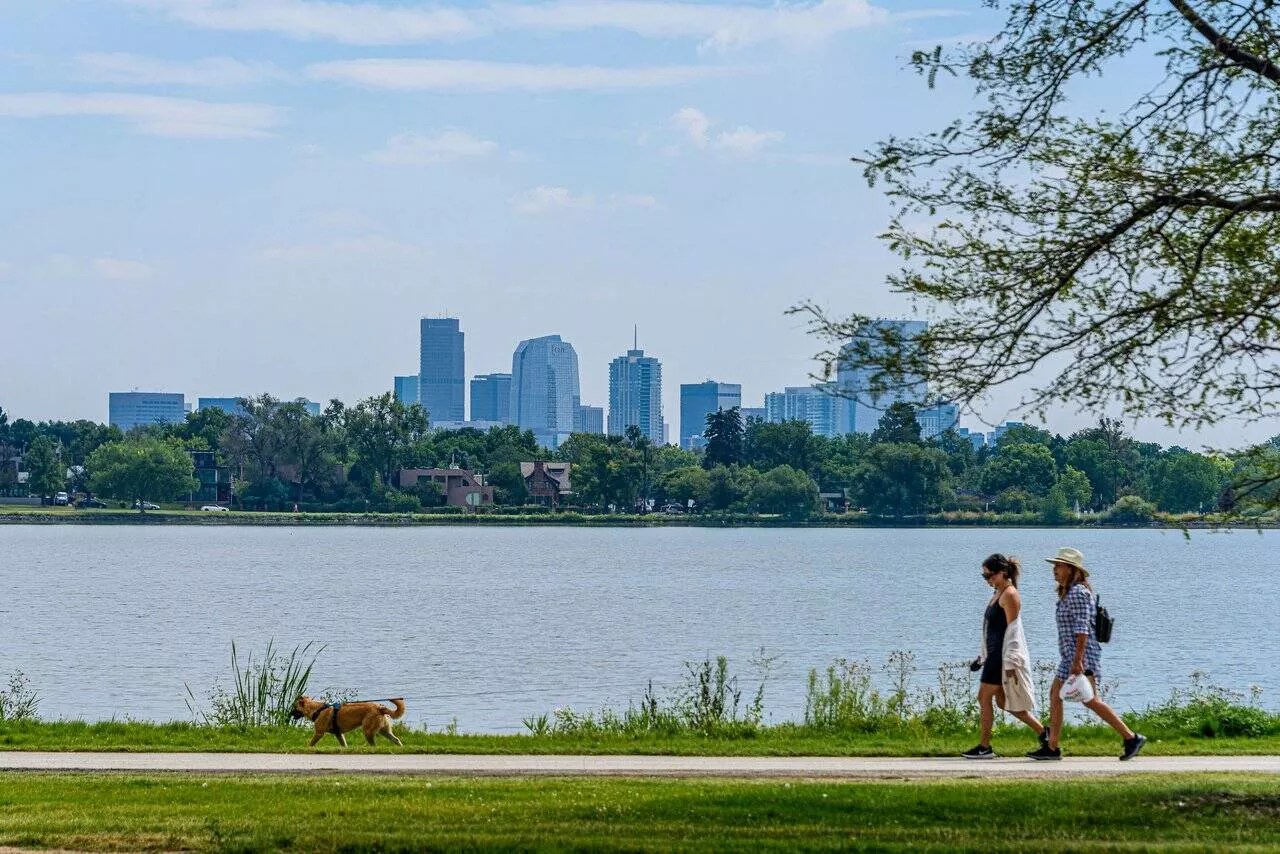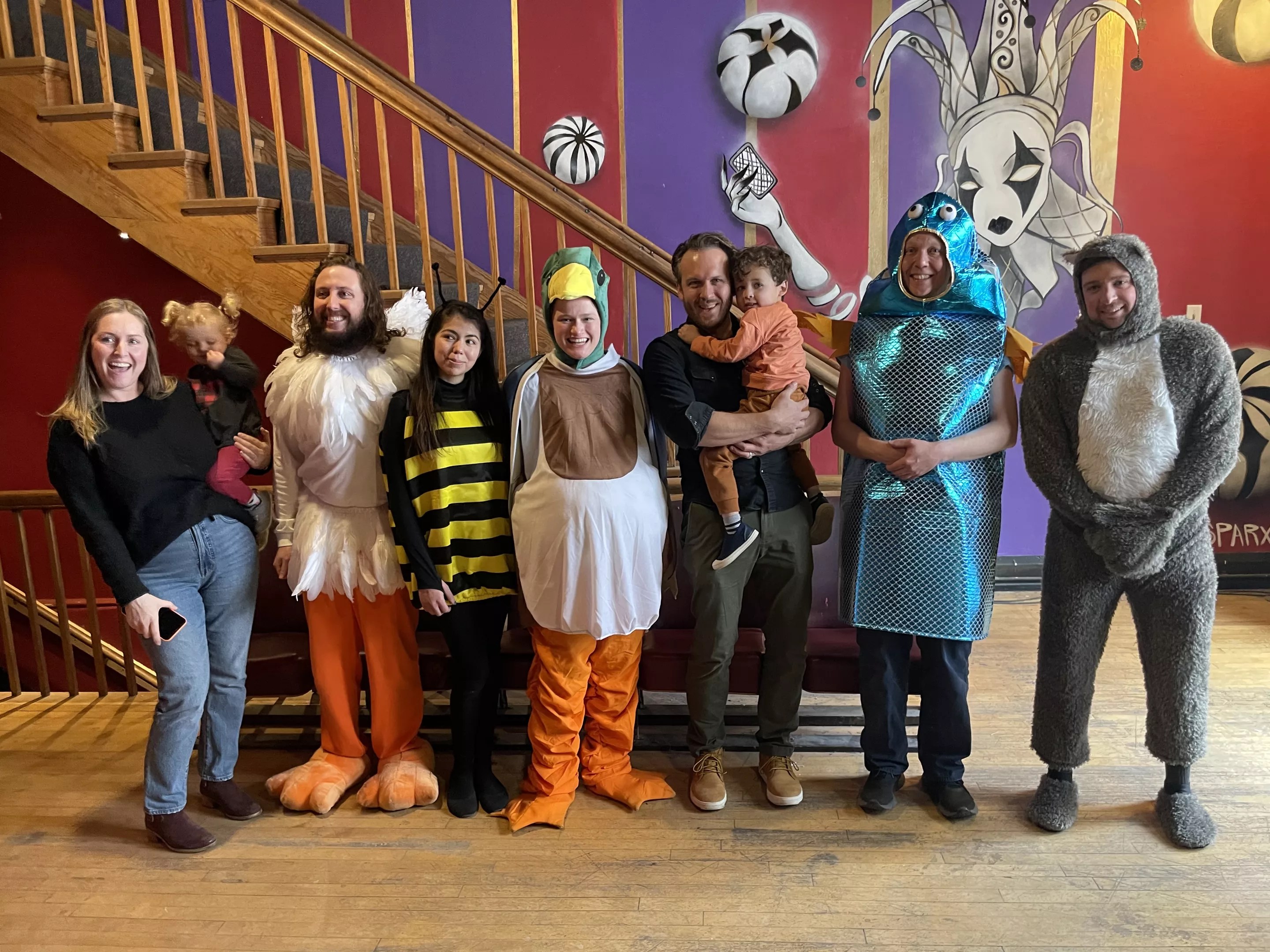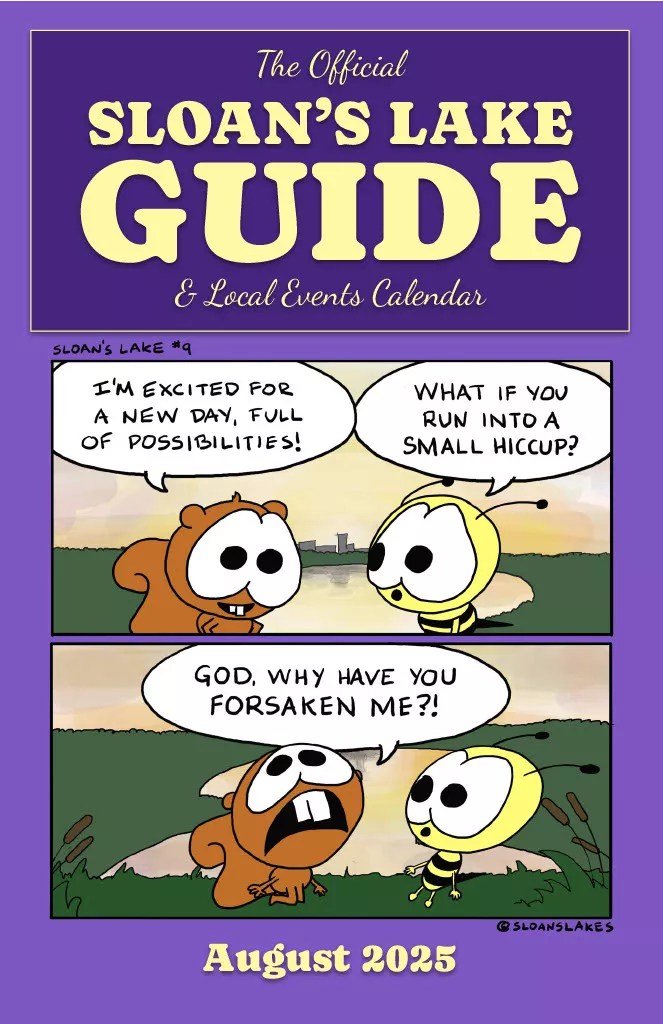
Courtesy of Sloan’s Lake Foundation

Audio By Carbonatix
When Sean McGowan helped launch the Denver Art Society in 2009, the idea was simple but ambitious: create a nonprofit, free-access gallery where anyone could walk in, browse and even hang their art on the walls at no cost. It started in his garage, fueled by a vision of filling the gap left by budget cuts to arts education in neighborhood schools.
“It used to be more education-focused,” McGowan recalls. “We wanted to provide all of the arts classes that were being cut in all of the neighborhood’s schools at the time, and we did a good job of it.”
Over eight years, the project moved to Santa Fe Drive and grew into one of the country’s largest free-access galleries, open seven days a week and bustling with workshops, exhibits and community events. But McGowan says that after he left to care for his grandmother in California, the organization’s focus shifted toward the art cooperative side of its mission, and some of the educational programming he had championed began to fade.
“They still do classes,” McGowan says, “but it’s more about the art cooperative and free access for the members. It’s not quite the same as what we started with. I returned from California just in time for the pandemic and wanted to provide free access and educational materials to students in Sloan’s Lake, where I live.”
That desire to recreate what he had previously built while avoiding the pitfalls he’d witnessed firsthand sparked the concept for the Sloan’s Lake Fine Arts Center, a fully community-funded cultural hub set to open in 2026. This time, McGowan is determined to begin with a structure that will last: a membership-driven model that is broad enough to be resilient and small enough to keep decision-making in the hands of the community.
“From day one, our goal has been to build something that belongs to everyone,” McGowan says. “By inviting our neighbors to join the journey with a cheap, fun membership program, we’re not just funding bricks and mortar – we’re investing in a living, breathing cultural epicenter that will serve generations.”
The center will be the first major milestone in the Sloan’s Lake Foundation‘s long-term plan to make the neighborhood a cultural hub for Denver. The vision includes an opera house for original operettas, a comic studio producing daily comics and graphic novels, an animation studio for shorts and films and a grant program that supplies arts-education materials to public schools, all for free.
The idea for the center traces back to the early months of the pandemic, when McGowan wrote a children’s musical called Bruce the Goose. Set on Sloan’s Lake and featuring a cast of animal characters drawn from the park, the show was designed so local schools could perform it without the steep licensing fees charged by mainstream titles.

Bruce the Goose, an original musical set on Sloan’s Lake, was the organization’s first project during the pandemic.
Courtesy of Sloan’s Lake Foundation
“It just started as one musical for local kids,” he says, “but then we thought, ‘We could do this for a lot of different stories and give them all away for free.'” That realization sparked the idea for a nonprofit model inspired by Wikipedia, in which the art would always be free to use and community support would cover the costs.
“Having a grassroots, crowdfunded, nonprofit structure just makes sense because we’re not capitalists and we’re not charging for the product,” McGowan says. “We’re not charging for the art, which really allows us to focus on the art. Have you seen the new Superman? I really enjoyed it, but at the end of the day, every decision they made for that film was based on making money. Sure, art is the vessel through which they are doing so, but if you create great art and it does not make money, you are fired, James Gunn, and that desire for money will always poison the well.”
Instead of chasing large donors or staking the project’s future on unpredictable grants, the Sloan’s Lake Fine Arts Center is relying on a membership model that starts at just $3.50 a month. In exchange, members get the printed Sloan’s Lake Guide and perks from local businesses, including a free yoga class from YogaSix Edgewater, buy-one-get-one coffees at SloHi Coffee + Bike, and discounted tickets to Lakeside Amusement Park.

All Sloan’s Lake Foundation members receive the monthly printed Sloan’s Lake Guide, as well as free offers from local businesses.
Courtesy of Sloan’s Lake Foundation
“Partnering with local businesses has been 100 percent why this has taken off,” McGowan says. “They get more customers, we get more members, and everyone benefits. It’s unclear whether people are joining because they get some goodies, which are perfectly fine, or if they believe in the mission and want to support it. There are definitely people who are only paying $3.50 per month, but the average contribution is closer to $20, so the fact that people are paying more than necessary indicates that they support the project.”
The project is currently about a third funded, with the goal of reaching half by the end of the year and full funding by next fall. Once that happens, McGowan hopes to lease an existing space near Sloan’s Lake, possibly in partnership with other arts organizations to share costs. “If we get to about $6,000 a month, we’ll be comfortable getting a space,” he says. “Maybe we can start with a big space divided into smaller studios for different tenants. Over time, as we grow, we could take over the whole thing ourselves.”
Further down the line, the dream is to work with the city on building a permanent opera house at the historic boathouse site, though McGowan admits that’s likely a decade away. In the meantime, the focus is on creating a welcoming, seven-day-a-week space where people can make and experience art for free. McGowan envisions the center running on two parallel tracks: a steady flow of community events and exhibitions, and the creation of original content in-house.
“Pretty much right away, we’ll be a full, free-access fine arts center,” McGowan says. “If you’re a musician, you’ll have a stage. If you’re an artist, you can hang your work. And if you just want to see a show, you can walk in without paying a dime.”
The gallery will feature rotating exhibitions, and live performances will ramp up from one or two nights a week to nightly events within six months. At the same time, the comic and animation studios will begin work on projects such as the first animated episode of Bruce the Goose, while the opera house team creates new musicals to perform and share with others via the free grant program. That program is already reaching fourteen Colorado public schools, providing them with complete show kits, including scripts, scores, recordings and performance rights, at no cost.
“I wrote to every elementary school in Colorado to let them know we’d send everything they need for free,” McGowan says. “And to this day, those schools are still performing Bruce the Goose as their spring or summer musical.”
Students get to perform works created specifically for them, often with local settings and characters. The foundation plans to add two new student musicals each year, ensuring that schools can stage fresh productions every semester.
McGowan’s time at the Denver Art Society taught him how easily a mission can drift when financial survival is dependent on sales or donors. “We don’t need to make money on the theatrical performances, comic books, films or anything,” he says. “Everybody gets it for free, and it’s all paid for by people with a $3-a-month membership. By crowdfunding, nobody has enough of a stake to tell you what to make or how to make it. And every month that number just keeps getting bigger and bigger, and it just feels really good. It feels really resilient and solid, and it’s just a great way to build a Foundation.”
For McGowan, success won’t be measured solely by opening the doors in 2026. It will mean creating a space that is open every day, actively inclusive and safe for all.
“It’s important that you can go to a place that isn’t going to be dominated by a toxic masculine culture or racism,” he says. “If you don’t actively fight those things, they take over. It’s important to create an environment that is inclusive and welcoming to everyone and is open every day of the week. This will be a place where people can explore their best selves, whether you’re attending in the audience or you want to share your art.”
Learn more about the Sloan’s Lake Fine Arts Center at sloanslakefoundation.org.